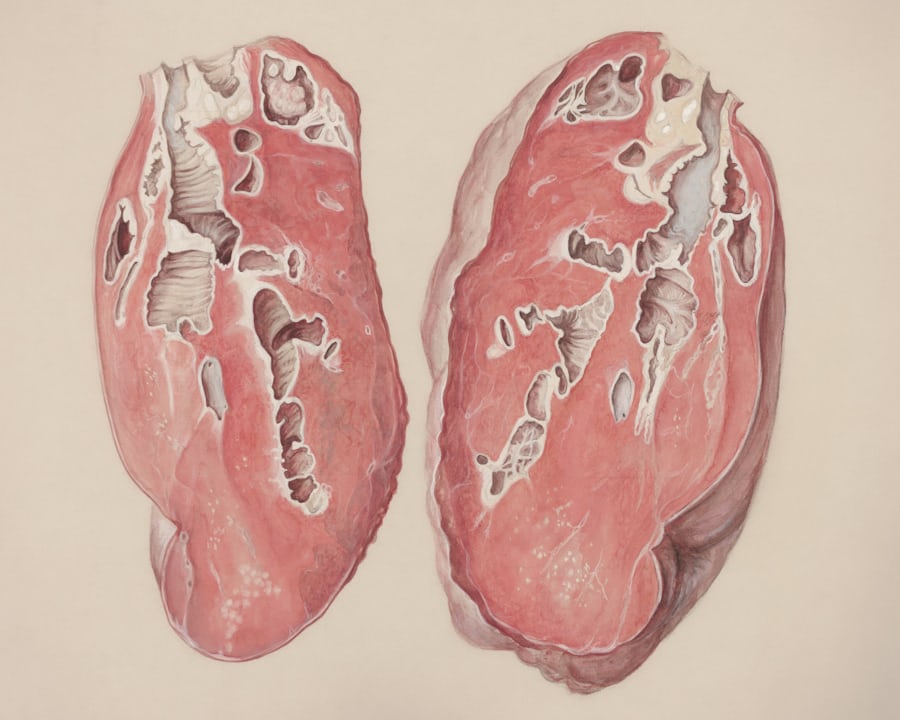Acute Pyelonephritis: A Serious Kidney Infection
Acute pyelonephritis is a sudden and severe infection of one or both kidneys. This condition, which can cause significant discomfort and potentially lead to serious complications, arises when bacteria travel from the lower urinary tract to the kidneys, triggering an inflammatory response. Prompt medical attention and appropriate antibiotic treatment are crucial for a successful recovery and to prevent long-term kidney damage.
The Ascent of Infection: Causes and Risk Factors
The most common culprit behind acute pyelonephritis is Escherichia coli (E. coli), a bacterium that normally resides in the intestines. The infection typically begins as a lower urinary tract infection (UTI), such as cystitis (bladder infection), and then ascends the ureters to infect the kidneys.
Several factors can increase an individual’s susceptibility to developing acute pyelonephritis:
Female Anatomy: Women are more prone to UTIs and subsequent pyelonephritis due to their shorter urethra, which allows bacteria easier access to the bladder.
Urinary Tract Obstruction: Any blockage that hinders the normal flow of urine can create a breeding ground for bacteria. Common obstructions include kidney stones, an enlarged prostate (in men), or structural abnormalities in the urinary tract.
Vesicoureteral Reflux (VUR): This condition, where urine flows backward from the bladder to the ureters and kidneys, is a significant risk factor, particularly in children.
Weakened Immune System: Conditions such as diabetes mellitus, HIV/AIDS, or the use of immunosuppressant medications can impair the body’s ability to fight off infection.
Catheterization: The use of urinary catheters can introduce bacteria into the urinary tract.
Pregnancy: Hormonal changes and pressure on the bladder during pregnancy can increase the risk of UTIs and pyelonephritis.
Sexual Activity: Sexual intercourse can facilitate the movement of bacteria into the urethra.
Recognizing the Warning Signs: Symptoms of Acute Pyelonephritis
The onset of acute pyelonephritis is often abrupt and can include a combination of the following symptoms:
Fever and Chills: A high fever is a hallmark symptom, often accompanied by shaking chills.
Flank Pain: A deep, aching pain is typically felt in the side, back, or groin area, corresponding to the location of the infected kidney.
Nausea and Vomiting: Feeling sick to the stomach and vomiting are common.
Urinary Symptoms: These may include a burning sensation during urination (dysuria), an increased frequency and urgency to urinate, cloudy or foul-smelling urine, and in some cases, blood in the urine (hematuria).
It is important to note that in older adults, the classic symptoms may be less pronounced, and confusion or delirium might be the primary sign of infection.
Diagnosis and Treatment: A Two-Pronged Approach
Diagnosing acute pyelonephritis involves a combination of a physical examination, a review of symptoms, and laboratory tests. A urine sample will be analyzed (urinalysis) and cultured to identify the presence of bacteria and determine the specific type causing the infection. Blood tests may also be ordered to check for signs of infection in the bloodstream. In cases of recurrent infections or suspected complications, imaging studies such as an ultrasound or a CT scan of the kidneys may be performed to look for any underlying abnormalities.
Treatment for acute pyelonephritis primarily focuses on eradicating the bacterial infection with antibiotics. The choice of antibiotic and the duration of treatment will depend on the severity of the infection and the type of bacteria identified.
Outpatient Treatment: For uncomplicated cases where the patient can tolerate oral medications, a course of oral antibiotics, typically for 7 to 14 days, is usually prescribed.
Hospitalization: More severe cases may require hospitalization for intravenous (IV) antibiotics and fluids to ensure adequate hydration and a rapid response to treatment. This is often necessary for patients who are very ill, pregnant, or have underlying health conditions.
In addition to antibiotics, supportive care measures are important for recovery. These include:
Pain Relief: Over-the-counter pain relievers can help manage flank pain and fever.
Hydration: Drinking plenty of fluids is essential to help flush the bacteria from the urinary system.
With timely and appropriate treatment, most people with acute pyelonephritis make a full recovery. However, if left untreated, the infection can lead to serious complications, including kidney abscesses, sepsis (a life-threatening bloodstream infection), and chronic kidney disease. Therefore, seeking prompt medical evaluation for any suspected symptoms is crucial.


